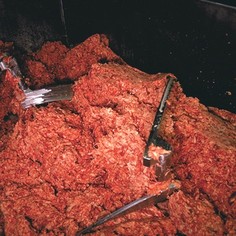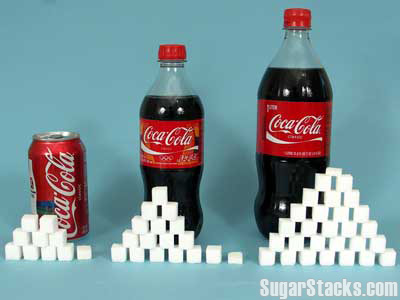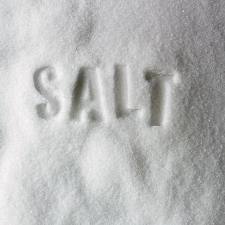This is a common yet important question I receive all the time, so I thought it may interest many of you readers if to briefly discuss it here on SAPTstrength. Now, this topic can get pretty geeky pretty fast, so my goal here is to KISS, give you a quick n' dirty rundown, and avoid delving into the myriad metabolic consequences of resistance training (shifts in hormonal release, the acute and chronic shifts in protein balance, up- and down-regulation of androgen and other specific membrane-bound receptors, etc.), how your pre/peri/post-training nutrition can specifically enhance/attenuate these positive/negative consequences, and related topics that I'm sure the majority of you would rather swallow nuclear waste than read about.*
I realize that most of you only care about the "Okay, so what do I actually do?" question as opposed to all the fancy schmancy science, and "whys" of the issue. (At least I think this is an accurate statement.)
I'll cut right to the chase: The supplement industry will have you believe that you need a very specific formula of proteins, carbohydrates, and [insert X superduperawesome compound necessary to become a walking science experiment and stun your peers into submission]. They tell you that if you don't take their product, then you won't maximize the results of your workout (be it muscle building, fat loss, or athletic performance) and you won't recover as quickly/optimally betwixt training sessions.
Is there any merit to consuming a beverage containing a specific carb:protein ratio (usually 3:1 or 4:1)? Yes.
Do these supplements "work"? Yes. (depending)
Have I ever taken them/recommended them to my athletes and clients? Yes. (minus the ridiculous over-the-top supplements)
Are they necessary to achieve your goals and are you a fool not to take them? NO.
Do I still take them? No. (unless you include fish oil or Vitamin D in this equation)
The bottom line is that nearly any combination of healthy proteins, carbohydrates, and fats pre- or post-training will be plenty sufficient in terms of supplying your body with the necessary nutrients to supply energy and boost recovery.
Here is what I am currently ingesting post training....
Example 1 (Homemade Shake)
- Almond Milk
- (Raw) Coconut Milk
- Protein Powder
- Banana
- Mixed Berries
- Gatorade Powder (for some extra sugar)
- Brazil Nuts (sometimes)
- Kale (sometimes, although I should include it all the time)
Example 2 (A Meal)
- Chicken or Steak (any dead animal flesh will suffice)
- Potato (sweet or baked)
- Mixed Veggies
- Strawberries (or any other fruit)
Try to get your post-workout "feeding" in you within 30-45 minutes of your training session.
As for before training, consume something that is easy on your stomach. It might be similar to the shake I provided above, or something as simple as a banana (or apple) with peanut butter.
It really doesn't need to be more complicated than that.
I'll tell you what, I used to construct my own "optimal" workout drink containing 50g dextrose (simple sugar), 20g whey protein, 5g Leucine (the golden child of amino acids), 5g Glutamine, and even some Vitamin C and E for good measure.
This was the "pefect" post-workout beverage (if there is a such thing), yet am no longer worrying about ingesting that specific of a formula. And you know what? I'm still alive. I'm still getting stronger. I'm still building muscle. My body fat is still at a healthy level. And I recover just as quickly as before. What do you know.....
What do I believe is even more important than your pre/peri/post workout beverage?
Yes, ingesting a quality meal shortly after training will do wonders for your recovery and aiding you in your goals. But you know what? I feel that some of us get so caught up in the intricacies of workout shakes that we miss the big picture.**
Instead of worrying about how many simple sugars we're receiving pre/post training, why don't we concentrate on giving it our all during a set of squats, deadlifts, or chinups?
Instead of wondering if our shake will help us recover fast enough, why don't we make a wholehearted effort to get a full night's sleep and partake in other stress-reducing activity throughout the week?
Rather than stressing over whether or not we remembered to put extra leucine in our shake, why don't we focus on consuming quality foods throughout the remaining 15 waking hours of the day?
Closing Thoughts
- Pre- and post-training nutrition is important, so do it! I don't really care what it is, just have SOMETHING.
- Water makes up roughly 70-80% of your muscle cell composition. So don't forget hydration!
- Supplements can be fantastic for convenience. For example, while traveling, it's much easier to fill a few ziplock bags with Surge Recoveryrather than bringing your blender with you.
- Yes, the "training window" is important for getting in a quality shake/meal, but it will never outshine dialing in your nutrition during the other 15 hours of the day.
- This post is geared toward the majority of the population. Yes, I realize there are outliers (bodybuilders two weeks out from a competition, for example) that will lead to exceptions for my recommendations. For the sake of brevity I omitted those here.
- Keep it simple. Ingest something with some sugar, protein, and even some healthy fats and make sure that it sits well with your stomach.
- From what I can judge from recent research, consuming fats will not significantly slow the absorption of other nutrients (thus hindering recovery) in the grand scheme of things.
- For athletes partaking in multiple training sessions a day: Yes, get in your post-training shakes, FOR THE LOVE!!
- Focus on quality training sessions, getting a full night's sleep, and reducing stress in your schedule. This will trump the potential benefits any workout shake.
*Although, for the record, I totally could. **I knew a guy that literally spent so much time and thought mixing and matching his chemicals for his bazillion shaker bottles, each and every day (while rarely focusing on his actual workouts), that we nicknamed him "Chemistry Set."






